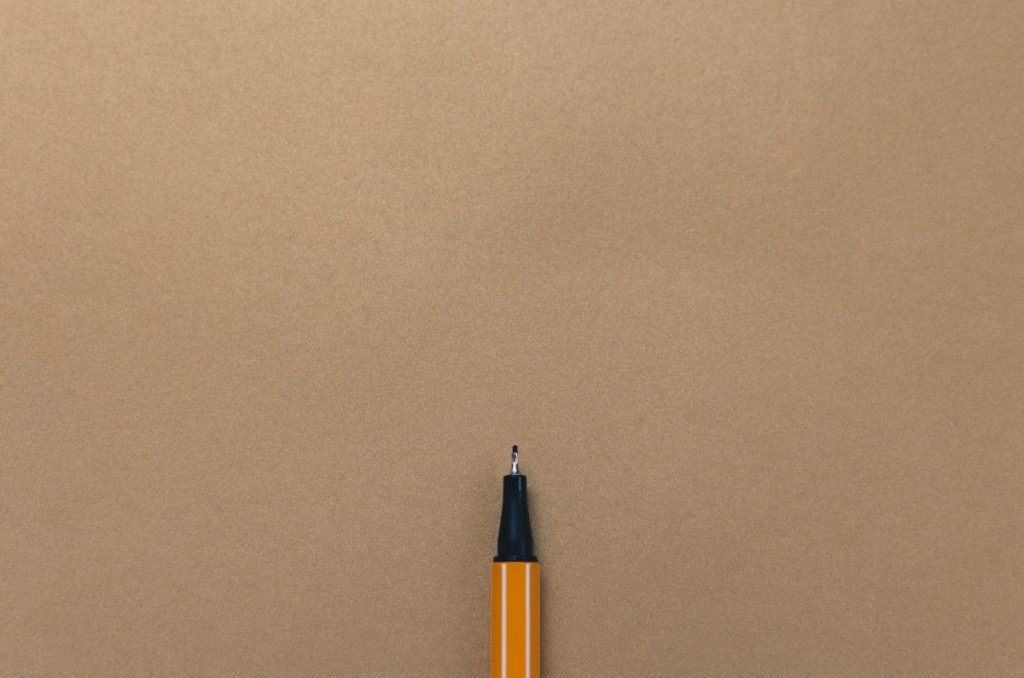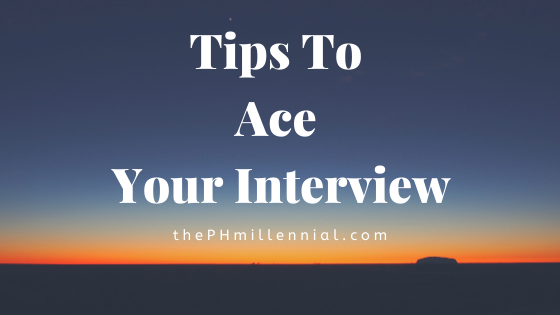You are going to need tips to ace your interview. We can always improve on our interviewing skills. No matter what stage of a job we’re in, interviewing is a worthwhile skill to have.
You want to give every interview your best shot. You’ll have to prepare accordingly by doing the right research with practice to have a successful interview. We can focus on many factors of an interview, but ensuring that we are putting the right strategies to succeed are important.
You can practice interviewing by yourself, with a friend or even through a professional service. I outline some important considerations to take when preparing for your next interview in this article.
Here, I write about tips that you can use to better prepare for the interviews that you have ahead.
Support The Public Health Millennial on BuyMeACoffee
(Related: How To Search For Job During COVID-19)

What Is A Job Interviews?
A job interview is a key part of the hiring process. Job interviews are invitations that are offered after you have built hype with your resume and cover letter.
A Job interview can be defined as: a meeting organized by a hiring manager or recruiter that is used to assess a potential candidate for a prospective employment position.
Job interviews are used to assess:
- Can you do the job being asked?
- Are you enthusiastic and really want to do this job?
- Will you be a good fit for the company?
Job interviews were traditionally face-to-face meeting, however, in recent years and especially with COVID-19, Zoom and telephone interviews are becoming the norm. Even in these formats, interview types or ‘styles’ can be vary widely (see Type of Interviews section below).
In addition, interviews tend to last between 30-60 minutes. And can either be one interview or multiple rounds of interviews. The amount of people conducting the interview may vary from 1-12 members. Usually more senior positions will have more rounds and more people present conducting the interview.
Interviews are a great way for employers to:
- Dive deeper into your work experience and how it relates to the role you’re applying for.
- Show that you are able to work under some pressure. This is especially true for associate level positions and higher.
- Give you chance to demonstrate your competencies, intent, character in a face-to-face manner.
Types Of Interviews
Phone Interviews
Phone interviews are where phone calls are the method for interviewing. They can be can be 1-on-1 or a panel interview. Phone interviews tend to last shorter than your regular in-person or virtual interviews. This type of interviewing is usually used as one of the first round of interviewing for a position.
In-Person Interviews
In-person interviews are when you are invited into the organization you applied to for an interview. These can be 1-on-1, panel, group, or out of office interviews. Knowing which type of in-person interview is important so that you are able to prepare appropriately. In-person interviews are traditionally the most sought after interviewing type, however this will probably change to virtual interviews in light of COVID-19.
Virtual Interviews (Zoom, Webex, etc.)
Virtual interviews are interviews that are done via web conferencing platforms. This can be Zoom, Skype, Google Hangouts or Webex. Whatever virtual platform is being used for your interview, make sure that your computer is set up before the interview begins. Ensure that your background is presentable and that you are in a quiet location with reliable internet connection.
One-Way Interviews
One-way interviews are a newer format of interviewing that I recently got acquainted with. A one-way interview is where you are prompted question which you have to reply to via a video recording. Usually you have a limited amount of time to think about the prompted question as well as a limited time on how long you can take before responding. One-way interviews are usually one of the first rounds of interviews offered.
(Related: How To Write A Cover letter|2020)
15 Tips To Ace Your Interview
7 Tips for Before The Interview
1. Research
Before any interview, you should do your own research. This research should be on yourself, the position, the organization, and the industry. Doing this will help you be fully prepared to ace your interview.
Yourself.
Firstly, you need to know yourself. Why is it that you want this position? How does it align with you future goals? You’ll need to know your personal values, your strengths, weakness and areas for improvement. Knowing all of this will help you to better answer interview questions.
The position.
Secondly, you’ll want to do your research on the position they are hiring for. You’ll want to understand the positions roles and duties as best as you can. Learn how the skills you have match the position you are applying for. Know the shortfalls also so that you can address them. Use Glassdoor to research duties of positions, their salaries, and reviews for various organizations. Use LinkedIn and your network to reach out to someone in a similar position or in the same organization you are hiring for.
The organization
Thirdly, you’ll want to ensure you know about the organization. Yes, you’ll want to know the mission, vision, values of the organization. Additionally, remember to dig deeper and learn about the projects the organization is doing, some recent publications, and how the organization works. Trying to understand the organizations work culture and seeing if it matches with yours is just as important as it is for you as the employer. Bonus points if you join the organizations newsletter to get the latest insights on what’s going on.
Industry
Lastly, you’ll want to do research on the industry. In public health, this will be important for understanding the geographical context. This can be state, regional, and local depending on how the organization operates. Do your research on the relevant information that will inform you of what is happening. Places vary different in their needs, capacity, and resources – it’s always great to have an idea of the general public health landscape in a new location.
More generally, you should know of the big things happening in the public health field when interviewing. Especially if it is going to relate to the job you are interviewing for.
2. Practice
Getting good at interviewing is a skill. Thus practice is important to be at the top of your game. Practice how you’ll answer certain questions, how you will tell your story of your experiences, practice so that you can speak fluently about your ideas.
You can do this through the research you do. You’ll want to know which skills and experiences you want to highlight in the interview process. Feel free to practice with a family member, your friend, a mentor or even through a service offered.
If you’re in the public health field, I suggest you check out Chilombo Global Career Services “Mock Interview” service for $75.
3. Have a plan for behavioral questions
Behavioral questions are some of the hardest questions you may be asked during your interview. Behavioral questions are ones that dig into how you handled a previous situation to learn about your abilities and personality. Ensuring you are prepared for these can drastically boost your interview performance. These are questions like:
- Can you talk about a conflict you had with a coworker or customer? And how was it resolved?
- Talk about a difficult problem you had to solve?
- Tell me about a major setback you had. How did you deal with it?
Use the STAR method to answer behavioral questions:
Situation – set the scene for the situation. Task – describe your responsibility in the situation. Action – explain the steps that you took. Result – share the outcomes your actions achieved.
In conclusion, the STAR method can really help you ace your interview.
(Related: 10 Actions To Improve Your Career Right Now)
4. Prepare great questions for interviewer
You should always show up to an interview with questions prepared. Great questions at that, not just questions that can be found on the organization’s website. You’ll really want to dig deep to ask questions that will give you insightful information as well as show you in a good light with the interviewer.
Having prepared questions are great because it shows that you are truly interested in the position and you are engaged.
A simple question that you can ask is: “What kind of advancement or promotional opportunities or additional opportunities am I going to have at this organization?”
This question is great as it tells the interviewer that you are open to expanding on your job role and want to know what opportunities are there for you to further develop your skills at their organization.
5. Write down your past experiences
Writing down you past experiences will allow you to have a clear story to tell about your experiences. This helps you to speak about past experiences confidently. It also allows you to better cater experiences to specific questions. Don’t go into an interview not being firm on the story timelines for your projects and what skills you learnt.
After you write down your past experiences, it’s a great idea to link together various experiences to show how you built upon the skills and knowledge. To ace your interview, you will want to be able to speak to experiences quickly and in relation to various questions.
6. Review your application materials
If you’re anything like me, then you have been applying to many job postings. You should have been modifying your resume and cover letter for each application. Make sure to go over the specific materials you submitted before the interview. This will ensure that you know which experiences you highlighted so that you can speak to them. Additionally, look over the job posting for specific skills and knowledge you should be ready to speak about.
7. Prepare attire, timing & technology
You will want to make a great first impression to ace your interview.
Attire
Prepare your attire beforehand. Ensure that you are wearing clothes that match with the company culture. If you aren’t sure, then more formal is always better. Dress so that you’re comfortable during the interview.
Timing
You’ll want to be at the interview location at least 15 minutes before the interview starts. Not only does this give you time to cool your nerves, but it’ll ensure that you are on time and leave a lasting first impression. This is also important for Zoom interviews, give yourself a few minutes to ensure everything is set up.
Technology
More now than ever interviews are taking place virtually. You’ll want to troubleshoot your technology to ensure that it’s working correctly before the interview. I would always ensure that you are able to load you camera on a virtual call and ensure your audio is working.
(Related: Reflection: 11 Months At My Public Health Fellowship)
6 Tips for During The Interview
1. Start off strong
As I stated earlier, being 15 minutes early is on time when it comes to job interviews. When the interview starts and you meet the interviewer, ensure that you give a firm hand shake (post COVID-19, of course). You’ll want to enter the workplace and greet everyone you see with a warm hello or good day – be polite, be courteous. Do not walk into the building with headphone on.
Remember the interview begins even before you enter the building. If you are doing a virtual interview, make sure that you have your microphone and video all set up before the interview begins.
2. Be Yourself
An interview is about showcasing yourself. Try to get comfortable so that you are able to let yourself shine. It’s always better to show the employer this is who you are and how you act. This is important so that the interviewer knows that you are a good fit for the organization. If you show a fake self then you may be miserable when the organization culture doesn’t match your real self expectations if hired. So just be yourself.
3. Bring a notebook
Apart from bringing a notebook, you can bring a copy of resume and some sample work pieces if applicable. Bringing a notebook can be helpful because you can have notes to help you during the interview, you can write down the questions you want to ask the interviewer and you can write down relevant information that came up during the interview.
Additionally, you bringing a notebook shows that you are dedicated and detail oriented. I always suggest that you take a notebook to help you ace your interview.
4. Body Language
During the interview can be a stressful time, you should try to ensure that you have the right body language throughout. Remember that a large majority of our communication is non-verbal with about 55% being accounted to body language. So ensure that you are reflecting a confident body language. Some ways to show good body language are:
- Sit all the way back in your seat
- Nod your head when listening
- Breathe deeply and take your time to speak
- Use hand gestures when speaking
Communicate both verbally and nonverbally effectively to ace your interview.
5. Smile/Be Friendly
You will want to try to smile during your interview and even before. This will help to relax you. Remember that you are being hired to work with other people in the organization. You’ll want to show that you are pleasant to work with. As stated earlier, you’ll want to ensure you start off strong – so make sure that you aren’t staring at your phone in the waiting room. Instead see if you could muster up some friendly conversation with the front desk staff or other employees. If they seem busy, ensure that you acknowledge them and ask them how they are doing.
6. Try to make it conversational
If you are able to make your interview conversational this means you are on your way to ace your interview. Being conversational in an interview means that you have become comfortable and built reasonable rapport. This allows the interview to move away from a more structured format and towards friendly chatter. You can develop a conversational interview by:
- Break the ice & build rapport
- Ask questions throughout the interview
- Let the hiring manager speak
2 Tips for After The Interview
1. Follow Up
In today’s job landscape, it is vital that you are following up in the interviewing process. There are so many qualified candidates, this can help you to stand out. However, following up has become much more common so you should do this nonetheless. Try to follow up with the interviewer with relevant information from the interview in an email. You should aim to do this 24 hours to 48 hours after you complete your interview. This is a nice gesture to show the interviewer that you appreciated the opportunity to interview and shows you are proactive and courteous.
2. Get Feedback
After you interview, you’ll always want to get feedback. We learn a lot from the feedback we receive. You should therefore aim to build the habit of asking for feedback if you get hired or if you’re passed up for a position. Getting feedback can help you to better understand which parts of your interview was strong and how you can improve. Building a skill of continued learning and development is a great way to do even better in your next interview. Get the feedback and put that into practice to be a stronger candidate in future interviews.
Psychological Tips To Ace Your Interview
1. Mirror Body Language
Mirroring body language can play a huge part helping you to ace your interview. There’s a psychological phenomenon called the “Chameleon Effect” that shows how people tend to like others more when they’re displaying similar body language. Mirroring someone’s body language is a technique you may want to reflect while you do your job interview. Why not try to be more liked just by mirroring the interviewers body language?
2. Eye Contact When First Meet Interviewer
Although making eye contact may seem unimportant or even weird. Your aim should be to make eye contact as it has been shown to make you seem more competent. Try to make eye contact when you first greet your interviewer. This also has the ability to deepen the rapport building that you do with the interviewer. In a study, persons that made more eye contact when speaking seemed more intelligent.
3. Tailor Answers to Interviewers Age
In the workplace today, there are four to five generations working. Being able to cater answers to a specific interviewers generation can help you to stand out among other candidates. Understanding the generalized qualities that each generation values will help you to better respond to various questions. Do some research on your interviewer and try to cater to what qualities you think they value in an employee.
4. Be Candid About Shortfalls
When asked about your greatest weakness, we usually try to refer to vague attributes like “I work too hard” or “I’m too detailed oriented.” Though these may be some of your shortfalls, it is a vague answer that doesn’t truly give the interviewer anything valuable. Being candid about your weaknesses humanizes you. And you can always use this to show areas that you are actively trying to improve. You should aim to be honest in your shortfalls during the interview process.
5. “Why Did You Bring Me In?”
Lastly, asking the interviewer why they brought you in to interview can help them show you what they think you strengths are and how you may fit into the organization. This can help to shift the interviewers mindset to think about why you are a great hire for the job posting.
(Related: What To Do In Times Of Uncertainty (COVID-19))

Summary Of Tips To Ace Your Interview
In conclusion, to ace your interview you’ll have to prepare extensively to give you the best chance. The best way to get the most out of your interview process is to prepare. You should aim to build upon your interviewing skills. You will only be successful in interviews if you are able to best match your experiences and skills to built stories that match the organizations culture and mission.
Overall, this article walks you through important tips you can take before an interview, during an interview and after an interview. You should always be aiming to put your best foot forward during interviews.
We all learn a lot about ourselves from taking part in interviews. I would say if nothing, you should try to improve every time you have a new interview. For instance, you can write down the hardest interview question and see how you could have approached it better. You should be aiming for improvement throughout the job search period. Similarly, by understanding behavioral questions and how to use the STAR method you’ll be on your way to acing the interview.
Aim to focus on both what you want and what you can give the organization during the interviewing process. Try to build rapport and be courteous to the interviewee.
In concluding, what do you think are useful tips to ace your job interview?



